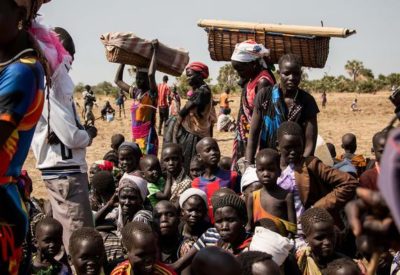“LGBT Rights” and Male Rape in Conflict: How to Abuse Humanitarian Law.

Senior Vice President and Research Director at C-Fam, Dr. Susan Yoshihara, was one of the first scholars in the world to warn the international community about the attempts of global abortion advocates to corrupt even the noble realm of humanitarian law.
With the excuse of addressing, and combatting the tragedy of rape in conflict, and in humanitarian crises settings, abortion lobbies falsely argue that abortion is already enshrined in humanitarian law. Since humanitarian law supersedes national laws, they further claim that access to abortion should be granted to any woman victim of rape in conflict – no matter what the protections of the unborn, in her home country, may be. As a result, humanitarian laws, as well as all the people and the organizations involved in providing humanitarian aid, would become responsible for the killing of the absolute most vulnerable ones: the babies in the womb.
What Dr. Yoshihara did not yet predict, but may as well have expected, is that “humanitarian” experts are now using the same strategy, the same emphasis on rape in conflict scenarios, and on the need to provide redress to its victims, to promote the LGBT agenda.
At the Headquarters of the United Nations, an exhibition describes how sexual violence is a constant and powerful instrument of war today. Strikingly, it underlines the need to address “male rape”. Well, that is right; males need to be defended too – and the reported numbers of male rape are quite high.
In another venue, however, more specifically, at the International Center for Transitional Justice, male rape was recently mentioned in order to formulate a very specific recommendation for “Institutional Reform Initiatives”.
The recommendation, contained in the report “When No One Calls It Rape: Addressing Sexual Violence Against Men and Boys”, reads: “Decriminalize homosexuality to ensure male victims are not afraid to come forward to report violations. Laws against homosexuality and the social stigma around it put homosexual men and boys at higher risk of abuse, and compound its consequences by making it difficult for male victims of sexual violence to seek and receive medical, legal, or social services.”
As said, there is absolutely nothing wrong in reminding the international community about “rape in conflict”, nor is there anything wrong in stressing the need to help male victims, as much as female victims of sexual violence. Decriminalization of homosexuality, however, is not the cure for male rape, precisely as much as abortion is not the solution for female rape. From a criminal law perspective, providing women access to abortion – especially if free and confidential – is one of the best ways to ensure the impunity of their aggressors. In addition, abortion kills a baby – adding violence to violence.
The idea that males who are victims of rape are underreporting it, because of the “stigma associated with homosexuality”, raises serious questions. We know that women underreport rapes. However, we also know that this happens even though there is no stigma associated with heterosexuality. Sexual violence is an attack to our deepest human intimacy: this is what makes it difficult to report rapes. Moreover, to argue that decriminalization of homosexuality would help victims “come out” seems to imply that where homosexuality is condemned the victim is considered co-responsible for the rape. Well, – this is an old story, and it was applied, and still applies to women too…
ICTJ was screening a movie on children born of war the night I discovered this report. I was expecting them to promote abortion, but they surprised me further.
They mocked the President of the U.S. Donald Trump, suggesting he will promote torture worldwide. They also condemned Mexico City Policy, and even decided that a sexual conduct that violates most of the world’s religions, traditions, and cultures should be immediately legalized.
View online at: https://c-fam.org/turtle_bay/lgbt-rights-male-rape-conflict-abuse-humanitarian-law/
© 2024 C-Fam (Center for Family & Human Rights).
Permission granted for unlimited use. Credit required.
www.c-fam.org

